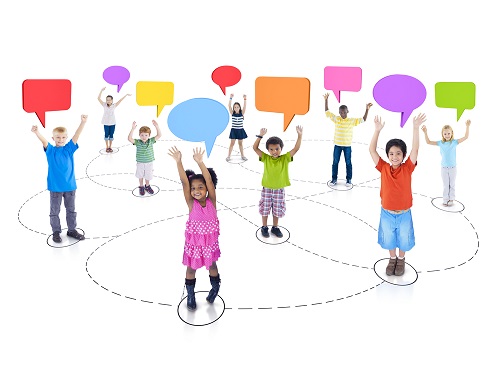Liberty Matters
Earliest Learning and Civil Society

I am honored to take part in a conversation with these esteemed scholars. I thank Mr. Davenport for inspiring us and Mr. Trepanier and Mr. Schug for their thoughtful contributions. Their historical overviews clarify the nature of the challenge we face. The pivotal question is: where do we go from here?
In my initial essay, I underscored the imperative of creating environments that empower young people to practice the habits of self-governance within formal education, recognizing this as a foundational element for cultivating a resilient civil society. In this post, I would like to add some additional thoughts on the importance of creating such opportunities beyond the classroom and give an example of one such opportunity the Bill of Rights Institute and I have created for this purpose.
The late economist Steve Horwitz, in his paper "Cooperation over Coercion: The Importance of Unsupervised Childhood Play for Democracy and Liberalism," delves into the contemporary challenges posed by modern parenting and culture with a focus on children’s play. Horwitz persuasively argues that limiting opportunities for unsupervised play obstructs the development of crucial skills necessary for fostering cooperative, tolerant, and non-coercive approaches to problem-solving. The risks associated with the absence of such skills are profound. Without the skills needed to cooperate among themselves, young people will depend on others to govern their interactions. Stifling informal spaces where creativity and cooperation are learned is likely to lead, in turn, to a coarsening of human social life. In order to create opportunities to practice these skills, we must reevaluate parenting and schooling to fortify the foundations of democracies.
Exploring the pedagogy of education for civil society, economist Andrew Humphries continues the conversation. His theme is restoring Alexis de Tocqueville’s call for "the practice in the art of association," echoed by Elinor and Vincent Ostrom, which has been regrettably sidelined in favor of easily measurable and testable content knowledge within the classroom. In a forthcoming essay, Humphries highlights a concerning decline in the development of essential capacities, attributing this trend to the rise of helicopter parenting and a shift towards lecture-style instruction at the expense of diverse forms of learning.[1] He examines 19th-century experiments in civic education that might be able to generate ideas for how to resist the current trend, most notably, the fascinating history of Junior Republics, where youth completely ran independent cities as part of an explicitly civic project.
It is imperative for young people to explore civic virtues, to collaborate, and to cooperate within their communities. In response to this imperative the Bill of Rights Institute has initiated a national civic engagement contest, called the MyImpact Challenge, to complement the virtue-rich resources it has made available over the past twenty years.
Dr. David Bobb, President of the Bill of Rights Institute articulates the institute's commitment to fostering civic engagement through the MyImpact Challenge in a recent article on The 74. This nationwide contest, launched in 2022, inspires students to conceptualize and execute service projects (government, charitable, or entrepreneurial) in their communities. Crucially, these projects are designed to connect with constitutional principles such as liberty, equality, and justice, thus providing a tangible link between civic action and the foundational values of democracy.
There are some today who malign "action civics" and see all action and service learning as indoctrination. There is a proper concern that young people today are being taught to act and protest rather than learn. It is absolutely essential that young people be taught to have a strong measure of humility regarding the traditions they inherit and to learn about the world before trying to change it. But taking away agency from young people throws the baby out with the bathwater. Putting people in seats and talking to them is insufficient to meet the needs of a democratic society. The decline in associational life must be met with a conscious response. Clubs and the roles of responsibility they foster, and youth organizations and activities that encourage young people to exercise virtues outside of the home are needed.
The diverse array of projects undertaken by contestants in the MyImpact Challenge—from food drives to disaster preparedness training, from environmental conservation efforts to entrepreneurship training, from organizing art festivals that support mental health to constitutional awareness campaigns—shows the multifaceted nature of principled civic engagement and the many opportunities young people have to practice the skills Tocqueville admired about American democracy--skills that are being lost.
As we contemplate the invaluable insights of past thinkers and the contemporary reflections of our esteemed scholars, the imperative for practicing the principles of self-governance from the earliest stages of life becomes undeniably clear. A flourishing democracy demands a holistic approach that equips the next generation with the skills and virtues necessary to navigate the complexities of civic life. Through initiatives like the MyImpact Challenge and the unwavering dedication of many organizations, we are not merely addressing a present need but sowing the seeds for a future where cooperation and the true spirit of freedom are the cornerstones of our society.
Copyright and Fair Use Statement
“Liberty Matters” is the copyright of Liberty Fund, Inc. This material is put on line to further the educational goals of Liberty Fund, Inc. These essays and responses may be quoted and otherwise used under “fair use” provisions for educational and academic purposes. To reprint these essays in course booklets requires the prior permission of Liberty Fund, Inc. Please contact oll@libertyfund.org if you have any questions.